Flavius Josephus (born Joseph ben Matiyahu), the noted ancient historian, has been maligned in certain academic circles ever since the early 1500’s for a paragraph he wrote in Jewish Antiquities 18.3.3 in the First Century AD:
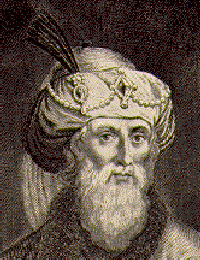
“Now there was about this time Jesus, a wise man, if it be lawful to call him a man, for he was a doer of wonderful works, a teacher of such men as receive the truth with pleasure. He drew over to him both many of the Jews and many of the Gentiles. He was the Christ; and when Pilate, at the suggestion of the principal men amongst us, had condemned him to the cross, those that loved him at the first did not forsake him, for he appeared to them alive again the third day, as the divine prophets had foretold these and ten thousand other wonderful things concerning him; and the tribe of Christians, so named from him, are not extinct to this day.”
The sources of the Josephus problem are the three phrases: “if it be lawful to call him a man,” “He was the Christ” and “for he appeared to them alive again the third day, as the divine prophets had foretold these and ten thousand other wonderful things concerning him.” It is incomprehensible to Jews that the very Jewish orthodox Josephus would ever say such things about Jesus and still remain an unconverted Jew as he did his entire life. It is incomprehensible to Christians that Josephus would make that statement and still remain an orthodox Jew.
In order to solve the “Testimonium Flavianum Question” (“Flavius’ Testimony Question”), as it is called, many Jewish and Christian scholars have accused “well-meaning monks” of interpolating the phrases into an otherwise authentic text. However, the text in Jewish Antiquities 18:3.3 completed in c. 94-96 had not been corrupted when Eusebius wrote his Church History in c. 300 and quoted verbatim from Josephus, calling him “a reliable historian.”
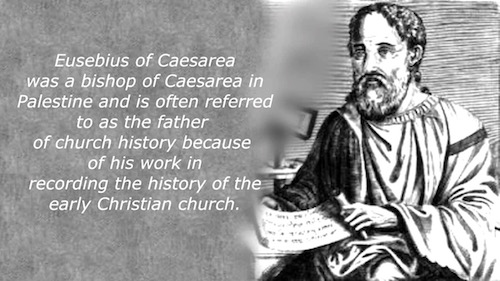
In Church History 1.11 Eusebius, quoting Josephus, says: “In telling this about John (the Baptist), Josephus says the following concerning our Savior in the same historical work (Jewish Antiquities): ‘About that time lived Jesus, a wise man, if indeed one ought to call him a man. For he was the achiever of extraordinary deeds and was a teacher of those who accept the truth gladly. He won over many Jews and many of the Greeks. He was the Messiah. When he was indicted by the principal men among us and Pilate condemned him to be crucified, those who had come to love him originally did not cease to do so; for he appeared to them on the third day restored to life, as the prophets of the Deity had foretold these and countless other marvelous things about him. And the tribe of Christians, so named after him, has not disappeared to this day.’”
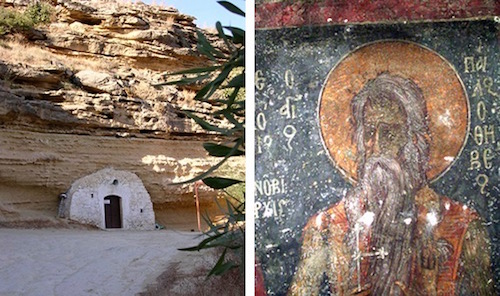
When Sozomen, a Palestinian Christian historian, wrote his Ecclesiastical History in the 400’s, it does not seem that the text had yet been interpolated because he writes:
“Josephus, the son of Matthias, also who was a priest and was most distinguished among Jews and Romans, may be regarded as a noteworthy witness to the truth concerning Christ; for he hesitates to call Him a man since He wrought marvelous works and was a teacher of truthful doctrines, but openly calls him Christ; that He was condemned to the death of the cross and appeared alive again the third day. Nor was Josephus ignorant of numberless other wonderful predictions uttered beforehand by the holy prophets concerning Christ. He further testifies that Christ brought over many to Himself both Greeks and Jews, who continued to love Him, and that the people named after Him had not become extinct. It appears to me that in narrating these things, (Josephus) all but proclaims that Christ, by comparison of works, is God. As if struck by the miracle, (Josephus) ran, somehow, a middle course, assailing in no way those who believed in Jesus, but rather agreeing with them.” Book 2.1
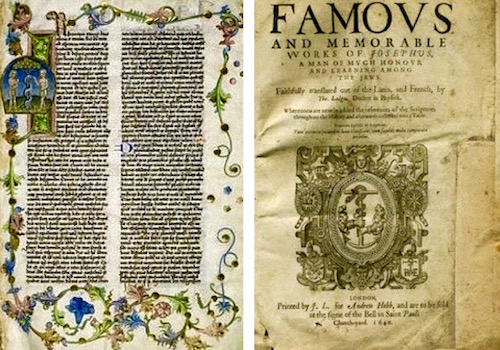
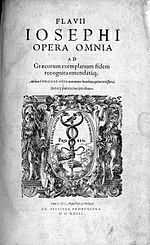
The same Testimony of Flavius Josephus is found in the extant Greek manuscripts of Josephus’ books 600 years and 900 years and 1,000 years after Eusebius first mentions it: Ambrosianus from the 11th century, Vaticanus from the 14th century, and Marcianus from the 15th century.
Josephus’ Jewish Antiquities and Wars of the Jews were wildly popular during the Middle Ages and later. There are still 171 Latin manuscripts from that time with Josephus’ Testimony in them.
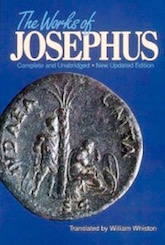
One wonders when in the years after c. 94 AD when Jewish Antiquities was written through the 300’s and 400’s when his words were cited by other authors and up to the Middle Ages and the Latin manuscripts containing his Testimony, one wonders exactly where, when and by whom was the text corrupted and, most importantly—why have we NOT FOUND an “uncorrupted” text?
Josephus’ complete Works, including in them the Testimonium Flavianum, are in our own day still “uncorrupted.”
For those who can read the Greek of Josephus’ Testimony, here is the Greek text:
“Ginetai de kata touton ton chronon Iêsous sophos anêr, eige andra auton legein chrê: ên gar paradoxôn ergôn poiêtês, didaskalos anthrôpôn tôn hêdonêi talêthê dechomenôn, kai pollous men Ioudaious, pollous de kai tou Hellênikou epêgageto: ho christos houtos ên. kai auton endeixei tôn prôtôn andrôn par’ hêmin staurôi epitetimêkotos Pilatou ouk epausanto hoi to prôton agapêsantes: ephanê gar autois tritên echôn hêmeran palin zôn tôn theiôn prophêtôn tauta te kai alla muria peri autou thaumasia eirêkotôn. eis eti te nun tôn Christianôn apo toude ônomasmenon ouk epelipe to phulon.”— Article by Sandra Sweeny Silver
